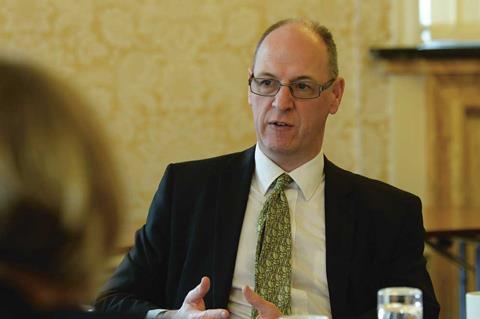The government should follow Scotland’s example and increase criminal legal aid fees to stop the system collapsing before an independent review reports back, the Law Society has told MPs.
The independent review into criminal legal aid, being led by competition lawyer Sir Christopher Bellamy, begins this month and is expected to report to government by the end of the year. However, Richard Miller, the Society’s head of justice, told the Commons justice select committee yesterday that could be too late for many firms.
Miller told the committee that 1,122 firms are holding a criminal legal aid contract as at 14 December – 150 firms fewer than in 2019. Duty schemes are collapsing and some are down to their last three or four lawyers.

He said: ‘This system is struggling. Somehow or other it still managed to keep coverage, just. But there is a real concern that if we see no further improvement before this report at the end of this year, and implementation time after that, it’s going to be too late for many firms.’
The Society wants to see ‘an interim across-the-board increase in rates, to at least stop the situation from getting worse while we look at the detail of what’s needed to make it sustainable in the longer term. Now this has been done for our Scottish colleagues’, Miller said.
Last month the Scottish government announced a 10% uplift in legal aid fees over the next two financial years.
‘We urgently need to see something similar here while we’re awaiting the outcome of this review,’ Miller said.
He added that fees must be regularly reviewed, telling the committee that there have been no cash increases since the 1990s. ‘Unless there is shown to be a clear government commitment to get this system viable now and maintained in the longer term, it’s not going to be sufficient to retain and recruit new lawyers.’
Announcing the Scottish government’s £20m support package last month, Scotland’s justice secretary Humza Yousaf said the measures recognised ‘the important contribution that legal aid makes towards tackling inequalities across Scotland’.
Yousaf said: ‘Legal aid helps often vulnerable people to deal with a range of issues, such as housing, debt, mental health and family breakdown, as well as providing a defence against criminal charges. In supporting the rule of law is upheld and that individual rights are protected, legal aid provision benefits all in our society.’



























5 Readers' comments